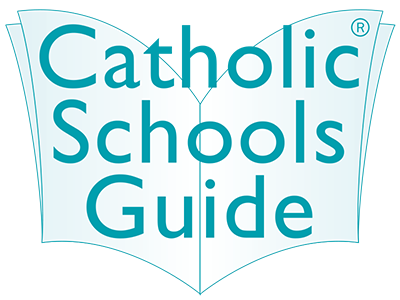News and Media

The Strength of a Catholic Education: Supporting Vulnerable Students
By Justin Roberts
National Program Director ReLATE, The MacKillop Institute
Human dignity, social justice and preferential treatment for the poor are central to Catholic beliefs and social teachings. These principles are embedded in every Catholic school, shaping their mission and inspiring families – both Catholic and non-Catholic – to choose a Catholic education. They form the foundation of inclusive school communities where every child is valued and nurtured.
Many of our founders were true change makers, living out these values in remarkable and challenging ways. Daniel Delany risked persecution in Ireland to support vulnerable youth and create a more just society. Catherine McAuley defied societal norms in 19th-century Dublin, serving and educating marginalised women and children. Edmund Rice, decades earlier, broke barriers by providing free education to impoverished boys, dismantling systemic injustice. Closer to home, Saint Mary MacKillop and the Sisters of St Joseph lived among the poor and marginalised, providing education and enduring significant hardship to serve those most in need.
Their legacy endures in Catholic schools today where social justice and inclusion are integral. Students are often empowered as change makers themselves – championing justice, volunteering, and connecting with disadvantaged communities. However, the truest test of our commitment to human dignity and justice lies in how we adapt to support our most vulnerable students.
Responding to Vulnerabilities in Today’s Schools
In today’s complex world, schools face significant challenges. Mental health issues among young people are rising, with over one in five experiencing high psychological distress.1 Over 60% of Australians have experienced some form of childhood maltreatment.2 Added to this are the lasting effects of the COVID-19 pandemic, natural disasters and increasing inequities – all of which can manifest in challenging behaviours among students.
These behaviours are often misunderstood, but they reflect unmet needs. A student struggling with emotional regulation might display aggression or withdrawal, not out of choice but as a response to underlying trauma or stress. While these behaviours can strain relationships within a school community, they also present opportunities for growth and compassion.
Amid these challenges, Catholic schools continue to lead in innovative, compassionate education that embodies our values.
Change Making in Action
Through my work supporting schools across Australia to implement the ReLATE Education Model (focussed on building school cultures of safety, engagement and wellbeing), I see the extraordinary efforts of Catholic educators and leaders committed to fostering inclusive, trauma-informed environments.
For example, a small rural primary school resists external and internal pressures to exclude students struggling with emotional regulation. Instead, staff embrace trauma-informed practices, adapting to meet their students’ needs while modelling resilience and inclusion.
In a large outer-suburb secondary school, staff work tirelessly to support students experiencing “school can’t” (previously mislabelled as “school refusal”). Rather than pressuring these students or their families, the school collaborates with them to implement flexible learning approaches.
Then there is the mid-size metropolitan primary school focussed on supporting staff to recover from the stress of supporting students, ensuring that they are well prepared to continue providing safe, predictable and creative support to their students.
As Catholic schools adapt to meet the needs of their most vulnerable students, they show that inclusion, not exclusion, is the measure of true success. These actions remind us of our founders’ courage and commitment to those most in need.
A Call to Compassion and Community
When a child other than our own is struggling, it can be tempting to seek their exclusion to protect others. While well-intentioned, such responses undermine the values that make Catholic education distinctive and meaningful. True change makers encourage schools to persist in supporting vulnerable students, recognising the profound impact this has on individual lives and the broader community.
By working together – educators, families, and communities – we can ensure Catholic schools remain places of compassion and inclusion. These are schools where the vulnerable are actively welcomed, nurtured and empowered to overcome barriers beyond their control. Maybe, to meet the needs of the day, we are being called to go a step further and actively seek out vulnerable students, as many of our founders did. As Pope Francis reminds us, the stretching out of our hand is an essential step towards the creation of our “educating village.”3
To fulfil this mission, we must embrace courage, holding fast to our commitment to vulnerable students, especially when challenges arise. This is our legacy, our calling and our opportunity to be the change makers our schools and students need.
1 Mission Australia. (2024). Youth survey | Mission Australia. Missionaustralia.com.au. https://www.missionaustralia.com.au/publications/youth-survey
2 Haslam D, Mathews B, Pacella R, Scott JG, Finkelhor D, Higgins DJ, Meinck F, Erskine HE, Thomas HJ, Lawrence D, Malacova E. (2023). The prevalence and impact of child maltreatment in Australia: Findings from the Australian Child Maltreatment Study: Brief Report. Australian Child Maltreatment Study, Queensland University of Technology.
3 Message of His Holiness Pope Francis for the Launch of the Global Compact on Education (12 September 2019) | Francis. (n.d.). www.vatican.va. https://www.vatican.va/content/francesco/en/messages/pont-messages/2019/documents/papa-francesco_20190912_messaggio-patto-educativo.html

